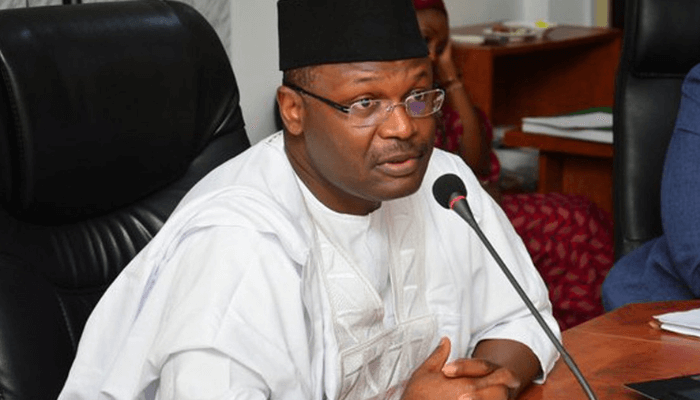EU follow-up mission hails progress on Nigeria’s electoral reform agenda
The Independent National Electoral Commission (INEC) last Thursday hosted a European Union (EU) Follow-Up Mission to review progress on recommendations made by the EU Election Observation Mission (EU-EOM) following Nigeria’s 2023 General Elections.
Receiving the delegation, Mahmood Yakubu, Chairman of the Independent National Electoral Commission (INEC), said the Commission welcomed the EU’s sustained engagement with Nigeria’s electoral process, noting that this was the first time a sitting INEC Chairman would host such a follow-up mission.
Yakubu recalled that in previous years, INEC had received EU Chief Observers, including Santiago Vincenzo in 2017 and Maria Karina in 2022. He commended the EU’s consistency in monitoring Nigeria’s elections since 1999, describing it as a key partner in electoral reform.
On the 2023 EU-EOM report, Yakubu explained that the Mission had made 123 recommendations, out of which 10 were directly addressed to INEC.
He disclosed that the Commission had already implemented administrative actions on several of the recommendations and was working with stakeholders on those requiring broader reforms.
“Some recommendations require constitutional amendments and legislative action, while others call for collaboration with political parties, civil society, the judiciary, and the media,” the INEC Chairman said.
“We have acted on those within our administrative purview, and we await ongoing discussions on legal and policy reforms with the National Assembly.”
Yakubu emphasised that INEC had published its own comprehensive review of the 2023 elections and that both reports were available on the Commission’s website.
He stressed that electoral reforms remained urgent, particularly as preparations for the 2027 General Elections gather momentum.
“We look forward to the National Assembly’s consideration of strategic electoral reforms. Without clarity in the law, we cannot finalize regulations, guidelines, or training manuals for future elections,” he stated.
Speaking on behalf of the EU delegation, Barry Andrews, member of the European Parliament and Chief of Mission for the EU Follow-Up Mission, said the EU was impressed by Nigeria’s efforts to implement the recommendations despite constitutional and time-related constraints.
Andrews noted that the EU deployed one of its largest observation missions for the 2023 polls, underscoring Nigeria’s importance in Africa and globally. “We are here to review progress, to listen, and to share international best practices that strengthen democracy,” he said.
He added that while significant steps had been taken, further work was required, particularly on constitutional reforms, transparency in result publication, and inclusivity in the electoral process.
“We acknowledge that many reforms require legislative and constitutional changes, which are complex. But we are encouraged by the level of engagement and progress already recorded,” Andrews said.
The EU delegation, which has been in Nigeria for the past three weeks, will continue consultations with stakeholders including civil society, political parties, and the media before concluding its mission.
Both INEC and the EU reaffirmed their commitment to deepening Nigeria’s electoral credibility ahead of the 2027 polls, stressing that international observation remains a vital tool for improving electoral standards and democratic governance.

